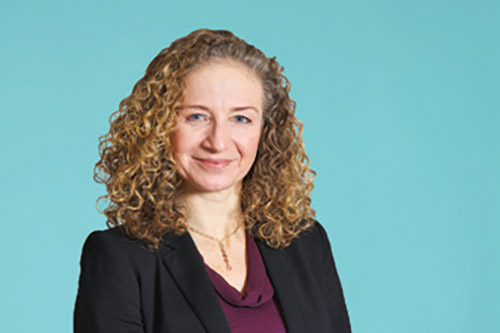

Holy Name Medical Center in Teaneck has partnered with Sheba Medical Center at Tel Hashomer in Ramat Gan, Israel, in order to launch a variety of projects centered around digital medicine. These projects include enhanced telehealth experiences, population data analysis and advanced electronics health records.
Dr. Ravit Barkama, assistant vice president of clinical development at Holy Name, and Dr. Eyal Zimlichman, Sheba’s chief innovation officer who oversees the Accelerate, Redesign, Collaborate (ARC) innovation program, will spearhead the project.
During a visit to Israel last June, Dr. Barkama toured Sheba’s ARC building and spoke with Dr. Zimlichman about a potential collaboration, explained Karen Biala, ARC’s international partnership’s manager.
“It was clear that their visions align,” Biala said, “and that Holy Name and Sheba could change the future of healthcare together.”
Both hospitals are interested in further implementing electronic health records that would offer doctors a chance to continuously monitor patients to help improve their care. Holy Name already creates and maintains its own electronic medical records that charts and analyzes patient information.
“In the future, there will be more wearables that will get continuous inputs for how the patients are doing,” Dr. Barkama explained. “A continuous EKG, continuous pulse oximeters, continuous breath rates, continuous glucose measurements.”
The data gathered from continuous monitoring can also be put to long-term use. With population data analysis, gathered after patients’ approval, Dr. Barkama explained, doctors can find patterns in diseases that will aid them in making future diagnoses.
Dr. Barkama also explained some of the unanswered needs in communication and telemedicine for which they hope to find solutions. Doctors can communicate more efficiently with their patients regarding either acute or chronic issues digitally, rather than in person. This comes in handy when doctors promote wellness and prevention practices, or answer other patient questions during treatment.
“A patient with diabetes could have a virtual conversation with their doctor about how to better control their diet,” Dr. Barakama said. “How do we enhance physical activity, how do we improve compliance with medications—we’re looking at what we can do to prevent patients from needing to come to the hospital.”
Virtual visitation works well for certain populations—geriatric patients, or newly nursing mothers—for whom physical movement might be cumbersome or risky, especially now during a pandemic.
Both Dr. Zimlichman and Dr. Barkama are looking forward to a successful partnership, and believe that both hospitals are a qualified match to advance healthcare. The culture of innovation runs deep within both hospitals.
“We’re moving to the next step of innovation and we’re really thrilled to do it with Sheba,” Dr. Barkama said.
Holy Name is a fully accredited, not-for-profit healthcare facility. It was founded and sponsored by the Sisters of St. Joseph of Peace in 1925. The hospital was recognized nationally for its COVID-19 response. It was the first hospital in the country to use placenta cell therapy and the first globally to use Regeneron’s anti-spike antibodies.
Sheba, which opened its doors in 1948, is the largest medical center in the Middle East. It is the only medical center in Israel that combines an acute care hospital and a rehabilitation hospital on one campus, and is at the forefront of medical treatments, patient care, research, education and innovation. In 2019 and 2020, Newsweek magazine recognized Sheba as one of the top 10 hospitals in the world.










